|
Ara, he pai ake te kaupare atu i te tuku I te mate kia pā mai, ā, ka rongoā ai.
Prevention is better than a cure. Rongoā, a māori system of healing, was well developed before European settlers arrived in Aotearoa.
0 Comments
“I orea te tuatara ka puta ki waho. A problem is solved by continuing to find solution” This whakatauki refers to the need for creative thinking, adaptability and perseverance in order to solve a problem. In Tairāwhiti, a remarkable innovation movement is revolutionising the game. Taiki e! Impact House is at the forefront of cultivating a culture of impact and innovation in our community. By empowering changemakers to tackle social and environmental challenges through entrepreneurship. Taiki e! firmly believe that business can be a powerful force for social and environmental innovation. Their goal is to collaborate on all levels and create sustainable impact, by providing opportunities for the community to engage in impactful initiatives, inspiring them to lead their own innovative solution development processes. The work at Taiki e! delves into the realm of imagination, exploring what it truly means to thrive and what changes are needed to make a positive impact on people and the planet. While it is crucial to address the immediate impacts of recent crises, we recognise the importance of examining the underlying systems that shape our lives. This is the essence of imagination work. Reflecting the theme of "Imagine if..." Startup Weekend Tairāwhiti 2023 sought to create a new economy that prioritises system-level change while preserving our planet. This 54-hour innovation boot camp guided participants in shaping their ideas into viable business models aligned with their purpose. The event was driven by a passionate and dedicated volunteer team, supported by the energy and enthusiasm of our community. During Tairawhiti's fifth Startup Weekend, 35 participants embarked on an incredible journey from imagination to creation. Seventeen individuals courageously pitched their ideas on the first night, and by Sunday, six teams presented fully fleshed-out business concepts to a panel of esteemed judges. Cherish Wilkinson, a member of the Startup Weekend Tairāwhiti organizing team, says the ideas pitched at this year’s event were truly inspiring and a beautiful expression of aroha. “We wanted to inspire our community to use their imagination and creativity to help solve existing problems and challenges.” “What an amazing weekend it was. We are all still on a buzz at Tāiki e! Impact House. We’re full of gratitude to the special people that made this weekend possible. From the facilitators to the mentors, volunteers and judges, our organising team and sponsors, and most of all, to the participants.” Healthy Families East Cape proudly congratulates Arohamai Funeral Home for winning first place at Startup Weekend Tairāwhiti 2023. Their innovative solution addresses the issue of inaccessible and unaffordable funeral services, offering affordable and solutions that are mana-enhancing and steeped in Mātauranga Māori. Arohamai Funeral Home exemplifies the profound impact that can be achieved when individuals are empowered to create innovative solutions. In the weeks ahead, Healthy Families East Cape will shine a spotlight on the top three winning rōpū, showcasing the remarkable impact they are making within our community through their innovative solutions and business models. Stay tuned as we continue to celebrate the spirit of innovation and entrepreneurship in Tairāwhiti! Pictured: Winning team 'Arohamai Funeral Home' members.
Ki ngā whakaeke, haumi – Join with those who connected the waka together. Find your place, you are part of the action.
This whakatauki speaks to the entrance into the moon phases that supports action. This is how we set ourselves up to dream of connection and more open and intimate experience of living (Wawata, Dr Hinemoa Elder). By Ranui Maxwell Using Te Whare Tapa Wha framework and the maramataka to guide and inspire innovation in Kaupapa Wellbeing has been the driving force behind the partnership between Healthy Families East Cape and Ngā Wāhine Toko I Te Ora. Under the influence of the Ōturu marama on Saturday the 6th of May our Healthy Families East Cape’s Practice Lead, Tomairangi Higgins, Rautaki Māori, Jade Kameta, and Communications Manager, Ranui Maxwell presented a Kaupapa Wellbeing prototype to our Kaupapa partners, Ngā Wāhine Toko I Te Ora – Te Tarāwhiti (Māori Women’s Welfare League – Te Tairāwhiti). It has been six months since Healthy Families East Cape began collaborating with our Kaupapa partners, Ngā Wāhine Toko I Te Ora – Te Tarāwhiti (Māori Women’s Welfare League – Te Tairāwhiti) to understand what their aspirations for their own and their whānau well-being are. As collaborative partners, we have worked together to co-design a prototype that has culminated in created resources and tools to help our wāhine achieve their aspirations. The Kaupapa wellbeing has been able to refresh Māori Women’s Welfare Leagues activation of leadership in our communities and within our iwi, hapu and whānau. Māori Women’s Welfare League have been activating leadership since their establishment 1951, and the partnership with Healthy Families East Cape team has been able refresh the adaptive capacity of the community in the direction of greater strength. In attendance at the regional hui were over 40 wāhine, along with the National President of the Māori Women’s Welfare League, Dr Hope Tupara. Dr Tupara spoke about the value of a partnership approach, noting their success with other partnerships. These partnerships are operating at every level of the system, meaning that partnership at this level can impact and influence transformational change at a policy level, and also shift behaviours at a community level. The Healthy Families East Cape team drew inspiration for the framework from insights gathered from the wāhine across our region, and utilised a co-design wānanga that saw the Te Whare Tapa Wha framework help mould the collection of lived experiences and aspirations for wellbeing - addressing the four taha of wellbeing, taha tinana (physical), taha hinengaro (mental), taha wairua (spiritual) and taha whānau (family). Aligned with the Māori Women’s Welfare League - Te Tairāwhiti Branch hui, Healthy Families East Cape have taken a quarterly approach, delivering prevention solutions via the resource pack and focussing on one of the four taha at each quarter. What came from our co-design hui and insight gathering is that our wāhine acknowledged a holistic approach to well-being, and that there is a passion to utilise a Te Ao Māori worldview - a worldview where hauora can only be achieved unless we address all four taha of our wellbeing. With this in mind, the Healthy Families East Cape team innovated to create resources that support their wellbeing journey, making it practical and drawing upon their overall aspirations - “Te Whare Whare Tapa Wha”, a take on a bingo card. The resources included:
This quarter, the focus was on Te Taha Tinana, in line with our maramataka and the season, encouraging our wāhine to “korikori tinana” (move their body) for 20 mins and incorporate daily activities like walking their dog and visiting their awa (river/lake). Healthy Families East Cape is committed to elevating maramataka and embedding the practice into all of our initiatives, and for some of our wāhine this will be the first time they have been exposed to the practice of Maramataka. Healthy Families East Cape continue to gain insight from our wāhine through their reflective journal and deepen the knowledge of maramataka being a prevention solution that creates positive change in our wāhine, their whānau, and communities. Kaupapa Wellbeing is elevating opportunities to work collectively to achieve an impact that makes a difference and evidence Māori systems of well-being. E tū i te tū a Hamoterangi, Wawata i ngā wawata a Hineteiwaiwa, E Kā i te ahi a Hinemauhuika, Tauiratia te mana a Hinetitama Stand tall likeHamoterangi, Dream big like Hineteiwaiwa, Be the flame of Hinemahuika, Be Hinetitama. Waiho i te toipoto, kaua i te toiroa. Let us keep close together, not wide apart. In the final days of April, Healthy Families NZ held its annual national hui, entitled "Now & Beyond," which brought together 11 Healthy Families localities from across the country. The national hui was hosted by Healthy Families Te Ngira at Turangawaewae Marae in Ngaruawahia with the purpose for sites to learn, share and come away with tangible actions as the Healthy Families NZ health prevention and innovation movement enters its third phase. The final night of the national hui saw all teams present kaupapa from across the country, with Healthy Families East Cape team utilising the time to raise awareness of the lived reality of our communities and region that have been and still are affected by Cyclone Gabrielle. Attendees were given a firsthand account of the impact of the cyclone through a creative skit entitled "Survive the 35," an escape room style challenge which highlighted the barriers faced by our communities in the aftermath of the natural disaster. The skit was used to spark discussion around preventative solutions and how communities can better prepare for future disasters. Utilising the lived realities of six personas from both inside and outside the Tokomaru Bay community, participants in the room were invited to work together to devise real-time solutions to the challenges Te Tairāwhiti faced during the Cyclone:
“The team wanted to highlight the importance of community collaboration in disaster preparedness but also, they wanted to highlight the importance of prevention and innovative solutions at times like these, further delving into the tremendous role that Healthy Families plays in our wider ecosystem,” said Healthy Families East Cape Manager, Toni June, of the team’s performance. Healthy Families East Cape would like to mihi and acknowledge all of our Healthy Families NZ teams for allowing us the opportunity and privilege to share, connect and be privy to their most cherished mahi from across the country. Healthy Families East Cape would also like to mihi to Taiki e! Impact House, our pioneering community champions, for their guidance, partnerships and inspiration in providing us the innovation tools and techniques of “Fishbowl conversations” and “Unconferences” which were utilised as part of the Healthy Families NZ national hui. These tools not only allowed our sites to creatively discuss and idea-share around key focus areas of Healthy Families, but they allowed us to elevate conversations around the importance of Mātauranga Māori as a health prevention tool, healthy food and physical activity choices, and increasing mental health, resilience, and wellbeing. Taiki E! I rangatira mātou i a koutou. Te taea te whakahua i ngā kupu hōnore. Tēnā rawa atu koutou. Every kōrero, connection and time for kai was an opportunity for learning, sharing, creating whakapapa ties and igniting our commitment to continuing the kaupapa of health prevention and innovation, “now and beyond.” Finally, Healthy Families East Cape would like to mihi to Healthy Families Te Ngira for their organisation and hospitality of the national hui, for bringing our teams home to Te Rohe Pōtae o Waikato Tainui. Te kainga o tā tātou Ariki Nui Kingi Tūheitia Pōtatau Te Wherowhero Te Tuawhitu e noho mai nei ki te ahurewa o āna mātua tūpuna. Ko koutou kei runga tōhaunui i rangatira ai te manaaki i te motu pae ki runga i a koutou. Tēnei ka mihi. Photographed National Healthy Families Hui-a-Tau 2023 attendees from our 11 Healthy Families localities.
Pictured: Linda Steel, CEO Te Ao Hou Trust and Coast Community Board - Ōpōtiki District Council, Representative. Linda Steel may hold a number of important titles in front of her name, such as CEO and representative on the Coast Community Board for Ōpōtiki District Council, but at the heart of it all, Linda is a staunch Tōrere local who intrinsically believes that it is at a local level where the solutions can be found and those in positions to support should do so wholeheartedly.
For almost 13 years, Linda Steel has been the driving force behind Te Ao Hou Trust's commitment to a flourishing and connected Ōpōtiki region and says there is so much more to give and do. “There are many challenges in leading change within a community, by doing so I must start with my organisation”. In late 2018, Linda in her role as the CEO of Te Ao Hou Trust, successfully applied in becoming the lead provider for Healthy Families East Cape. Healthy Families NZ takes a systems approach to health prevention, which means a departure from the traditional delivery of health promotion projects. It means considering how the systems that influence our approaches to health, and where best to intervene for optimal health and wellbeing outcomes. Drawing from different types of theories of complexity, socioecology, and systems, Healthy Families NZ explores and adopts sustainable and meaningful strategies to prevent chronic diseases across the whole population. And so began the journey towards addressing and creating complex systems change, utilising the Healthy Families NZ approach and way of working across her region. “I have spoken to a number of people about this, about how the Healthy Families NZ approach has changed the way in which I now go about our mahi, and I can share that six or seven years ago, I did not work in the same way I do today.” The East Cape region is a dynamic and diverse rohe stretching from Ōpōtiki through to Te Tairāwhiti and back through the East Cape, with different lived experiences. Linda believes there are many opportunities to improve the health and wellbeing of our whānau, hapu, iwi and communities by utilising the theory of change that Healthy Families NZ brings to the table, but we have to be brave enough to take the steps necessary. “As the CEO of Te Ao Hou Trust, I am excited by the mahi that our Healthy Families East Cape team is doing alongside our kaupapa partners and communities, valuing the things that matter.” Linda is firm in her belief that thinking creatively through being adaptive within a systems change approach to break through the traditional barriers, will drive profound sustainable change. She is also clear in identifying that the work of the Healthy Families NZ movement clearly defines the future way of working collectively for those who favour possibility over pessimism and feel energised whereas others feel challenged. “One of the things that I’ve been more conscious of as a leader and through my learnings from Healthy Families NZ and innovation is reflective practice. I never used to think about it, but in our tenure as lead provider I am always thinking what works well, what doesn’t work well and how we adapt. It has completely changed the way I work”. “I notice our communities don’t often reflect on certain issues. For example, when you are supporting a tangihanga, you are there in the moment and then go home, and often no one talks about it and it has impacted upon us. We just go on to the next kaupapa and get too busy to reflect. Reflective practice, for me, is one of the best strategies. It makes me think about what role I play within a kaupapa, and how I manage that space.” As the CEO, Linda has had to adapt to ongoing environmental and external disruptions in the past few years, including the global pandemic Covid-19 in 2020, and more recently, Cyclone Gabrielle in February 2022. “Our team make-up across Gisborne and Ōpōtiki means we have had to challenge, often within our own thinking as well, the traditional model of organisations. The team in Gisborne can operate solely, and our team members in Ōpōtiki work well remotely,” says Linda. “We’ve had to be nimble, and adapt very quickly to sudden challenges and the mindset that comes with being a part of Healthy Families NZ has helped with that.” Linda has had to make some “seriously courageous” decisions and moves over these past few years, says Healthy Families East Cape Manager Toni June. “Like many other leaders, Linda wears many different potae (hats) that extend her influence to other spaces with her whānau, hāpori, and as an active member of her iwi, Ngai Tai. This is evidenced through supporting locally-led solutions that have the biggest impact” she says. The recent health reforms have also been some of the most dynamic times for Linda Steel as CEO of Te Ao Hou, as she has sat alongside other local leaders in the Ōpōtiki District to co-design the localities approach for her region. I am still not comfortable with being seen as a “leader”, but it is more about how I interact in those spaces. We know our health system is broken, and from the conversations, I’m having with others and there is a real need to harness the power of our indigenous knowledge. This is done by ensuring that we are embedding mātauranga māori in our kaupapa and across our teams. This will be achieved through the practices of Healthy Families NZ and the systems change and design thinking approach. The localities kaupapa is already embedded with mātauranga māori and we need to explore how the Healthy Families approach is able to enhance this as well.” The development of localities across Aotearoa is a fundamental part of the reform of the country’s health system. This place-based approach to planning and delivering health and wellbeing services is an exciting opportunity to embed a stronger population health focus across the health system. “The locality approach operates outside of the system, the big difference is that the system is here to support, not to dictate. That has been the most dynamic shift within the system.” The roll-out of localities has begun happening over the past twelve months, with Eastern Bay of Plenty succeeding in becoming a localities prototype – one of the first twelve localities in Aotearoa to work towards their locality plan. New localities have been stood up each quarter so that every area in New Zealand has its own locality by July 2024. This is a collaborative process, with Health NZ launching a national platform where we can share our learnings about this new way of ensuring New Zealanders can access health and wellbeing services, where and when they need it, and in the way that works best for them. When asked if there were any insights that she’d like to share around the Eastern Bay of Plenty localities design and how the Healthy Families NZ approach can align to permeate better health and wellbeing outcomes, Linda is very clear on her thoughts of the influence of Healthy Families NZ in the localities space. “I honestly believe that the localities approach is a direct result of Healthy Families NZ.” “The magic is going to happen in the localities space, not in the system. And so having the system there to support and not dictate, in the same way, we operate with our partners at Healthy Families NZ in Te Whatu Ora, is refreshing and important.” “It is interesting because all of the kōrero in the localities space is about how we can change the system, or ecosystem and a term that has been used within our locality is about “planting new trees not propping up the old.” By Roimata Sinclair
Earlier this month, Healthy Families East Cape Rautaki Māori Jade Kameta facilitated an Ōpōtiki Play Steering Rōpū hui which gathered community play champions and representatives from Te Ao Hou Trust, Ōpōtiki Primary School and the Ōpōtiki District Council. The Ōpōtiki Play Steering Rōpū are well aware of the power in supporting and enabling play in our communities - community wellbeing is improved, social connectedness becomes more commonplace, and barriers to equity are largely removed. “We are passionate about facilitating the Ōpōtiki Plays Rōpū with the aim to empower communities and give them a stronger voice and role in lifting their own well-being.” The collective was pulled together by Healthy Families East Cape in 2022, with the aim to demonstrate the value of taking a whole of community approach to help identify the systems and the social and physical environments that affect play. Top of mind for the rōpū was discussing how the collective could support the exciting Ōpōtiki Taku Hīkoi kaupapa, an authentic place-based story-telling experience unique to the rohe that is planned to launch during Matariki. Rautaki Māori, Jade spoke about how the rōpū recognised that ‘Taku Hīkoi’ is a great opportunity to prioritise community wellbeing. “Understanding this means we are now pivoting to ensure that our local community have access to being involved in the kaupapa and realising the current barriers to participation and working to reduce and/or remove them,” says Jade. ‘Ōpōtiki Taku Hīkoi’ is a collaborative initiative led by the Whakatōhea Māori Trust Board and Ōpōtiki District Council to create 12 pou whakairo placed along the Motu trails. Each of the 6 hapu from the area will be represented, with their unique pūrakau (stories) and whakapapa shared alongside the pou. “Here at Healthy Families East Cape we know that environments play a valuable part in the health and wellbeing (hauora) of our people, especially Māori,” says Jade. “We also know that health is a cultural concept because culture frames and shapes how we perceive the world and our experiences.” The community led initiative aims to illuminate Ōpōtiki’s authentic stories and design a place-based, outdoor visitor and educational experience. Taku Hīkoi will also be integrated with an app made by Waikato University students, to gain comprehensive insight of the region’s unique culture and history. “Our vision was to create a heritage trail that would capture the kōrero of the iwi but, it would also be fun and interactive for the whole whānau,” says Anna Kurei, Community Engagement Officer at the Ōpōtiki District Council. “The idea is that by doing the heritage trail you are learning about the kōrero, ngā taonga tuku iho, from the hapu of the iwi and doing so in a fun way, through the use of technology and taonga tākaro.” “The app has been designed to work within the rohe to encourage people, especially those from Te Whakatōhea to return home and begin their journey of learning about their tuakiritanga hence the naming of ‘Taku Hīkoi’ (My Journey),” continues Anna. “Elevating local pūrākau will increase physical activity and play because the pou are located all over the Motu trail, but it will also strengthen people's connection with land, culture, and identity. This has a much bigger and more sustainable impact on the hauora of our people,” says Jade. “We must continue to support Iwi-led, mātauranga Māori informed approaches to hauora like Taku Hīkoi.” If we collectively understand that Māori principles and practices have always contained a range of tools and strategies, we can regenerate health. The steering group saw supporting ‘Taku Hīkoi’ as an exciting kaupapa to be a part of as it not only responds to local needs by using local cultural capacity it also continues to evidence mātauranga Māori as an effective health prevention solution. We look forward to sharing more about the initiative as it develops in the lead-up to the official opening during Matariki. To get involved in the Ōpōtiki Play Steering Rōpū please email jade@healthyfamilieseastcape.co.nz A playful partnership: Healthy Families East Cape and Sport Gisborne Tairāwhiti partners in Play23/12/2022
A playful partnership: Healthy Families East Cape and Sport Gisborne Tairāwhiti partners in Play20/12/2022 “Ko a mātou wāhine te kuaha ki o rātou whānau”
“Our women are the doorway into their whānau” Healthy Families East Cape is proud to be a kaupapa partner ofTe Rōpū Wāhine Toko i te Ora’s Tairāwhiti branches on their wellbeing journey for wāhine and whānau across Tairāwhiti. Te Rōpū Wāhine Toko i te Ora Tairāwhiti is celebrating the importance of a Kaupapa Māori wellbeing plan, with Healthy Families East Cape holding space for conversations, wānanga and co-design workshops with members and their communities throughout Te Tairāwhiti. Te Rōpū Wāhine Toko i te Ora was founded in 1951 to support Māori wāhine and their whānau. The organisation remains the longest and only national charitable Wāhine Māori organisation across Aotearoa, with more than 100 peka (branches) maintaining the collective’s mauri. The organisation’s principles are focused on the wellbeing of Māori wāhine and their whānau. Healthy Families East Cape Practice Lead, Tomairangi Higgins, has been brought up within the league, alongside lifelong members since the tender age of 5 years old. Adding to the intergenerational membership alongside her grandmother Te Riu Chaffey and her mother Gina Chaffey-Aupouri, who works at a national level as the area representative for Tairāwhiti. Tomairangi is also the President of Ngati Uepohatu peka, upholding another generation of leadership. Tomairangi speaks of her whakapapa links to the league and how fostering the relationship between Te Rōpū Wāhine Toko i te Ora Tairāwhiti and Healthy Families East Cape is important. The team has had the privilege of being able to hold deep kōrero with members, who spoke of their own whānau aspirations and first-hand knowledge of the needs of wāhine and their whānau throughout our rohe of Te Tairāwhiti. “Te Ropu Wahine Toko i te Ora are strong advocates for hauora and wellbeing,” says Tomairangi. “We strive to create and strengthen healthier environments for our whānau by working collectively to enhance kaupapa that directly affect our people in all levels of the system.” The Kaupapa Wellbeing is about understanding the whānau voice so we can guide and support our communities in taking a preventative approach to whānau well-being. The strategic intent of the partnership and collaborative approach of Healthy Families East Cape and Te Rōpū Wāhine Toko i te Ora Tairāwhiti takes a whole of-community and whole of systems approach to wāhine Māori wellbeing with the prevention, underpinned by Mātauranga Māori. “We have a responsibility as members, as wāhine Māori, and as Healthy Families East Cape to uphold the legacy of our tipuna and those who have gone before us, in pursuit of our collective health and wellbeing.” Workshops and wānanga facilitated by Healthy Families East Cape have been held across Te Tairāwhiti region, our approach is to meet with wāhine in their own communities and environments. Representatives from across Tairāwhiti peka have taken part in the first wānanga held in Tokomaru Bay at the end of September. The second wānanga was held in October in Turanganui a Kiwa. As the project lead, Tomairangi has used her deep understanding and whakapapa to the league and our wāhine of this region. To facilitate what wellbeing looks like for them and their whānau. We learned that they share similar values for the care of their whānau and the care of the wider community. We have learned that our wāhine’s wellbeing aspirations are grounded in care for their whānau and community. They have aspirations of collective activities such as working out together, finding and making more opportunities for singing and learning waiata and learning te reo. “I enjoyed everything, especially the awesome way in which it was facilitated”, I enjoyed listening to the other wāhine and how we share similar ideas about our wellbeing”. “The importance of whakapapa is paramount when engaging with our whānau who live rurally and are isolated from basic amenities, that we take for granted like being able to visit the doctor and hospitals when we are unwell. It was humbling to understand the lived realities of our whānau and their collective aspirations for their whānau and hāpori”. Says Communications Manager Healthy Families East Cape, Ranui Maxwell. On 27th September, Healthy Families East Cape’s Tomairangi Higgins alongside Rautaki Māori, Jade Kameta and Communications Manager, Ranui Maxwell went on a haerenga along State Highway 35 to paradise, to connect and understand the lived realities of our most rural communities in our rohe. One of the Kaupapa wellbeing workshops was held during this haerenga, with Jade Kameta sharing that the experience of being on State Highway 35 itself and reconnecting with his own whakapapa in Ngāti Porou one that grounded the team allowing them to deeply understand the risk factors that impact on the wellbeing of all whānau in our rohe. The team has now synthesized the insights from the workshops ready to present back to the Māori Women’s Welfare Te Tairāwhiti branch hui this December. He huahua te kai? E, he wai te kai. Are preserved birds the best food? Ah no! Water is. Does waipiro have a place in our whakapapa? Ōpōtiki’s Muriwai Tournament brings together local hapū and iwi to connect through sport. The tournament has been running for more than thirty-five years, using whanaungatanga, kaitiakitanga, and manaakitanga as the guiding principles. The tournament returned in early October after a two-year hiatus due to COVID-19 restrictions to an excited and passionate Ōpōtiki. The sports played over the two days included rugby, netball, Ki o Rahi, with tamariki having their own allocated day on Friday. This year, the Healthy Families East Cape team partnered with Whaakatu Whanaunga Trust to bring ‘Pimp my Wai’ to this year’s Muriwai tournament. The Pimp My Wai stall provided fresh wai as well as fruit and mint for whānau to ‘pimp’ their wai. Healthy Families East Cape works in partnership with the community and sector stakeholders, and to facilitate and support collective and comprehensive chronic disease prevention efforts that focus on alcohol-related harm. With the up-and-coming review of the Eastern Bay Local Alcohol Policy, Healthy Families East Cape and Whakaatu Whanaunga Trust’s CAYAD kaimahi wanted to gauge the appetite of the community in reducing the consumption of alcohol. “Inequities in harm can be driven by different determinants such as where we live or the number of alcohol outlets close to our whare,” says Healthy Families East Cape Rautaki Māori, Jade Kameta. “Just last week, Justice Minister Kiri Allan announced an amendment to the current legislation on the Sale and Supply of Alcohol Act that will see a shift in power to the community, and we see that as crucial to reducing alcohol harm in our regions.” The current alcohol legislation can hinder local communities’ ability to put in place rules around the sale of liquor in their area. The amendments to the Sale and Supply of Alcohol Act 2012 will remove the ability to appeal local alcohol policies (LAPs). The current appeal process is costing councils and ratepayers millions in legal fees, as alcohol companies and supermarkets have thwarted efforts by local councils to limit the sale of alcohol in their communities. The insights gathered by Healthy Families East Cape and CAYAD at the Muriwai Tournament will form part of a submission to strengthen local alcohol policies for Eastern Bay. Healthy Families East Cape, along with our kaupapa partners from Whakaatu Whanaunga TrustTikiahi Brown-Davis, Shaun Gebert and Cherish Chase, took the opportunity of the Pimp My Wai stall to ask whānau pātai about choosing Wai Māori over Waipiro, and if waipiro has a place in our whakapapa. “A lot of our community love alcohol and find it hard to say no, this leads to fights, family violence, family harm, drink driving, criminal activity, and negative influences. This explains why Ōpōtiki does not need more alcohol outlets, but more alcohol help services and positive initiatives to better support the community of Opotiki”. Tikiahi Brown-Davis, Tūhono Mentor The team also provided whānau the opportunity to answer whether they would choose Wai Māori over waipiro next Matariki. This is what whānau had to say:
Counteracting this are the statistics surrounding alcohol, of which we know that Māori experience disproportionate harm in Aotearoa. Ōpōtiki District Council’s region has a population of approximately 9,300 people, with 63% identifying as Māori (according to 2020 statistics). The region also has 22 active liquor licenses, with a higher number of licenses per capita than the national average. Young Māori (and Pacific peoples) men aged 15-24 years suffer more harm from living in areas with high numbers of liquor outlets compared to non-Māori men living in communities with the same number of liquor outlets. Data from 2012-2014 showed Ōpōtiki to have higher per capita rates of injury as a result of drunk driving when compared with the national average. Asking whānau about their appetite to choose wai Māori over Waipiro also curves the narrative from deficit-thinking to a strength-based narrative. Could Matariki be a mechanism for change? The Healthy Families East Cape team thinks so and sees an opportunity to explore and lean into the rich mātauranga that Matariki provides as a way of kerbing the sale of alcohol during Matariki. What we know about our traditional gorgonian holidays throughout the year is that they are typically intertwined with having a 'cold one'. With Matariki becoming a national holiday this year, we are provided a platform to shift the narratives away from alcohol or waipiro to exclude alcohol from those rituals. There are also factors at play, including balancing the economic benefits of the sale of alcohol that are powerful and contribute to the inequities in harm that can be driven by where we live. For example, “Buy now, pay later” (BNPL) options are also coming into effect, making alcohol more accessible and impacting on efforts to reduce alcohol-harm in our community. “The law isn’t working as intended. Local communities should be able to set their own rules to reduce alcohol harm but are being blocked at every step by the booze industry,” Kiri Allan said. Healthy Families East Cape has a bold goal of creating safe spaces where we live, learn, work and play which are free from the harm caused by alcohol and reduce the impact of this on our communities, particularly our tamariki. We are keen to continue to support local government with the review of the Local Alcohol Policies as one tool to manage and control how alcohol is sold and supplied in our Ōpōtiki. References https://www.ahw.org.nz/Issues-Resources/Harm-to-Māori https://www.beehive.govt.nz/release/communities-given-greater-powers-reduce-alcohol-harm |
Sign Up!Subscribe to our newsletter and receive our latest stories.
Archives
March 2024
Categories |
“We want all of Aotearoa to enjoy health promoting social and physical environments that enable healthy food and physical activity choices, being smokefree, reducing the harm from alcohol and increasing mental health resilience and wellbeing.”
Web Design by SBWD

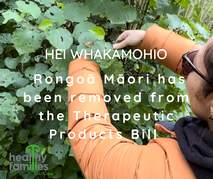
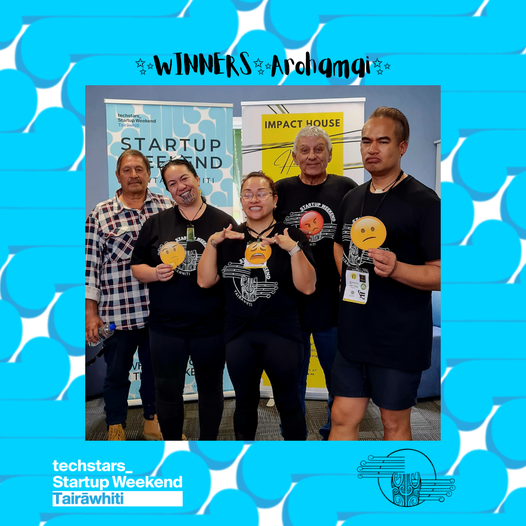
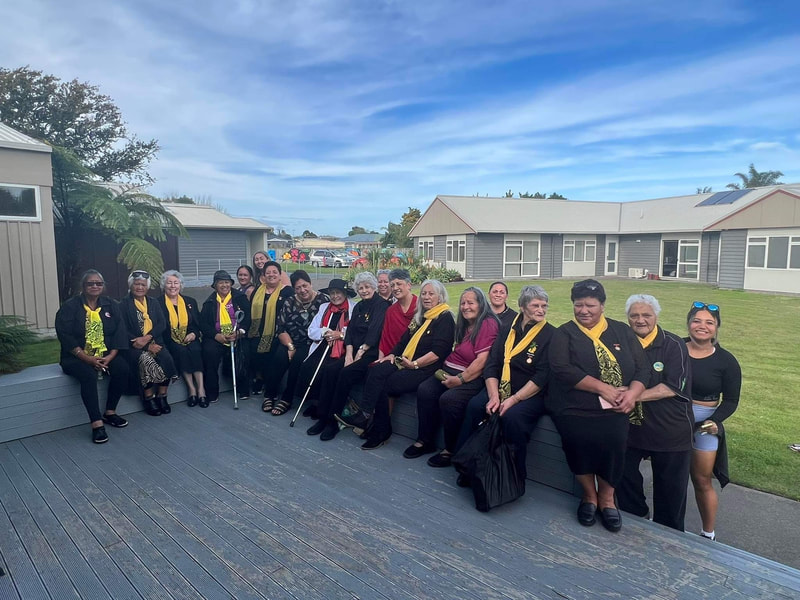
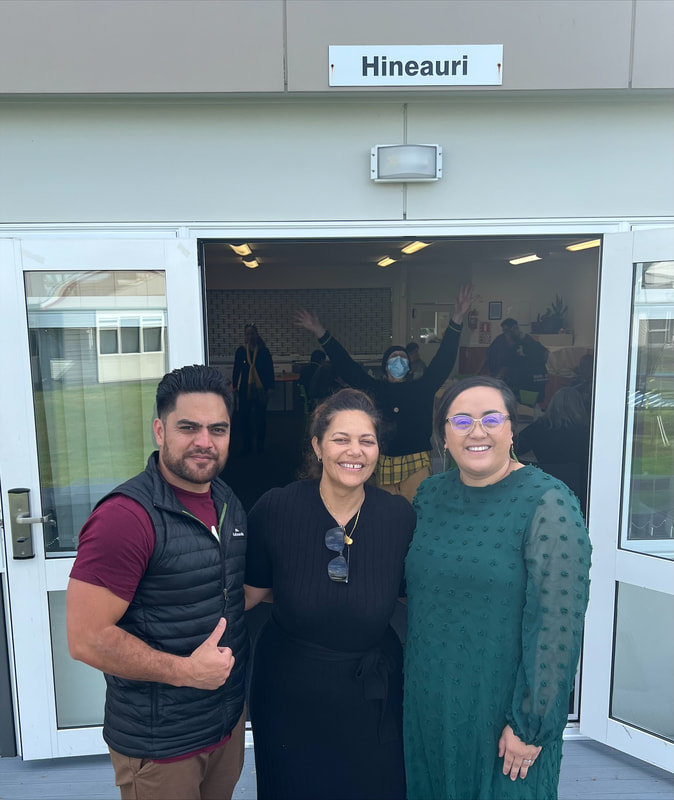
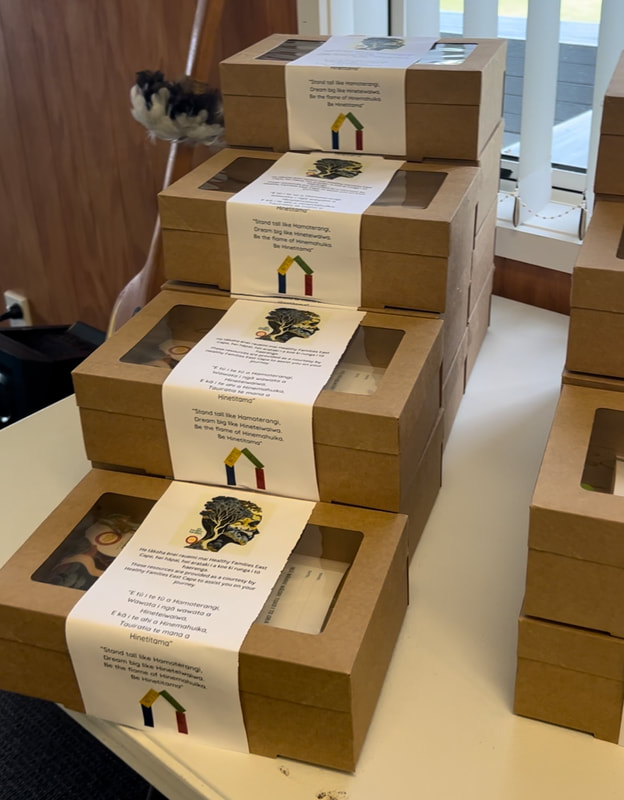
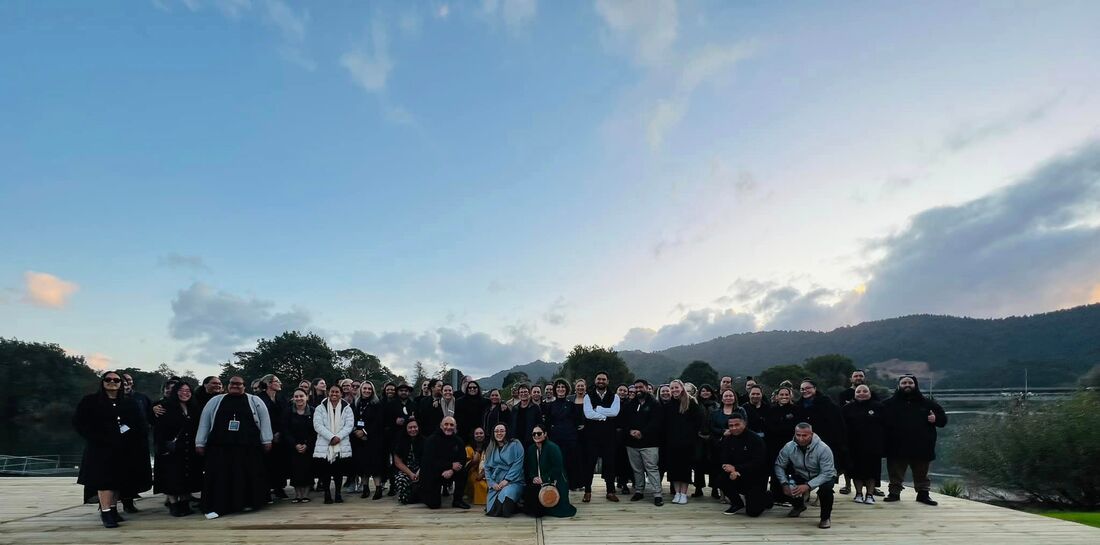
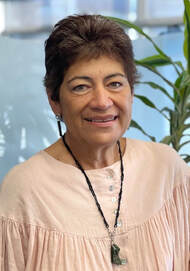
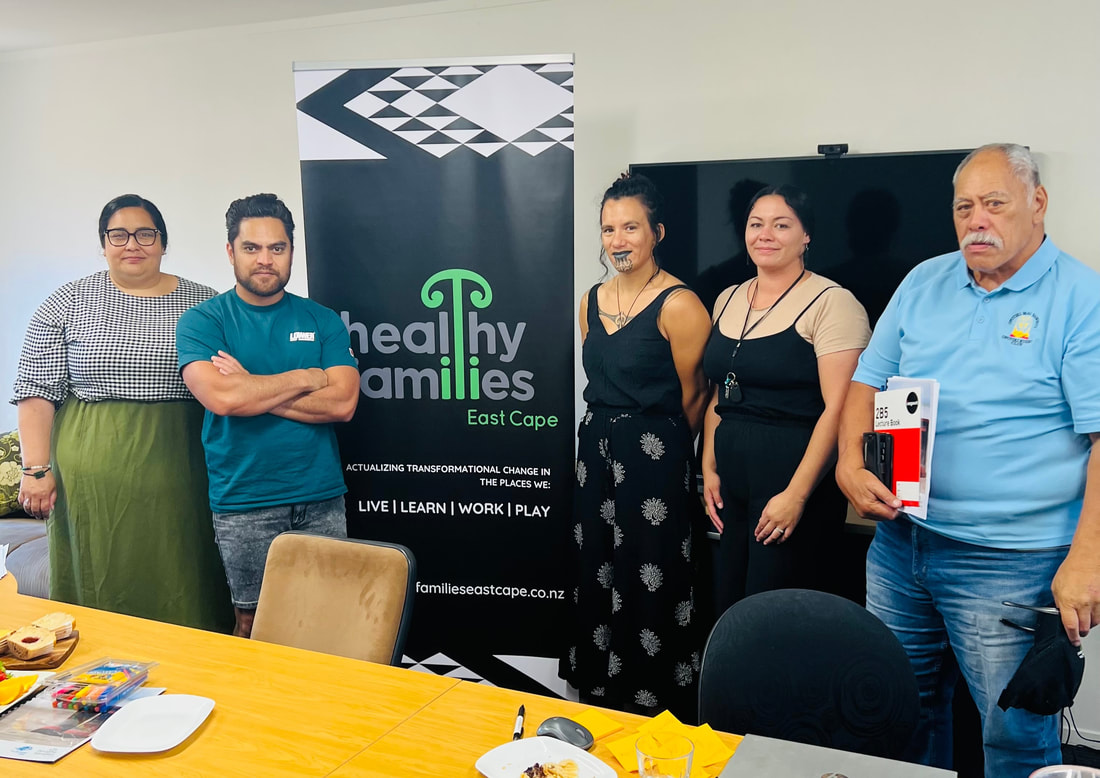
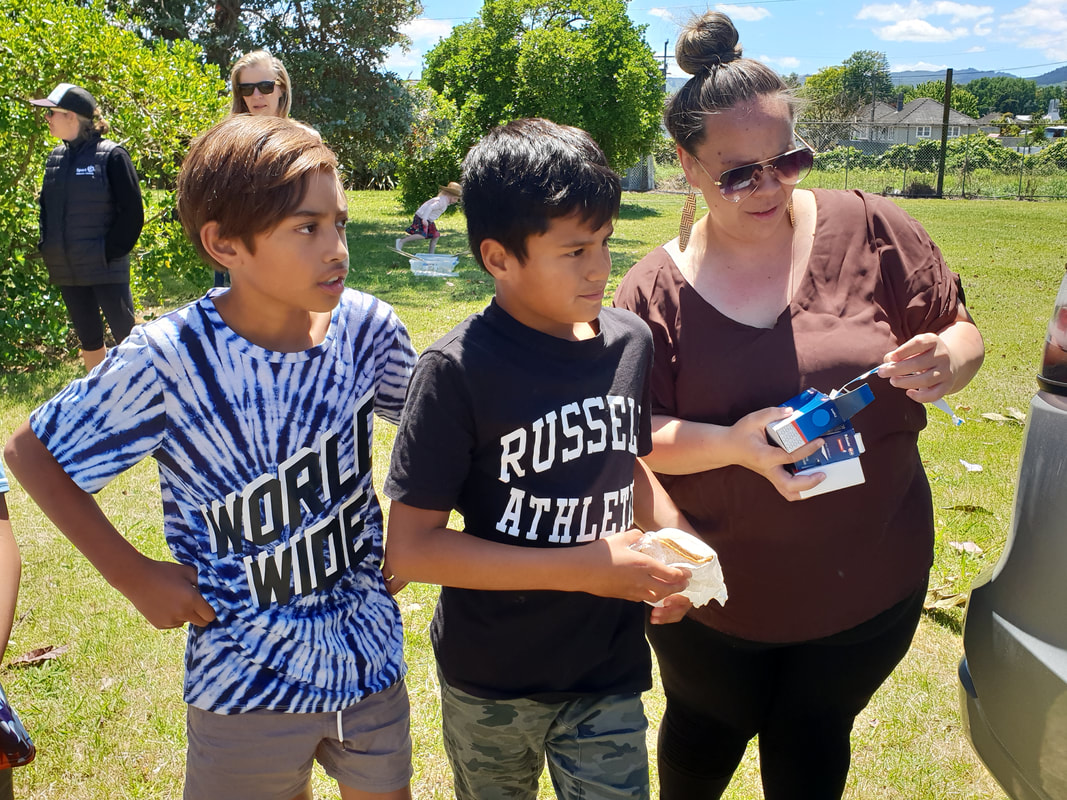
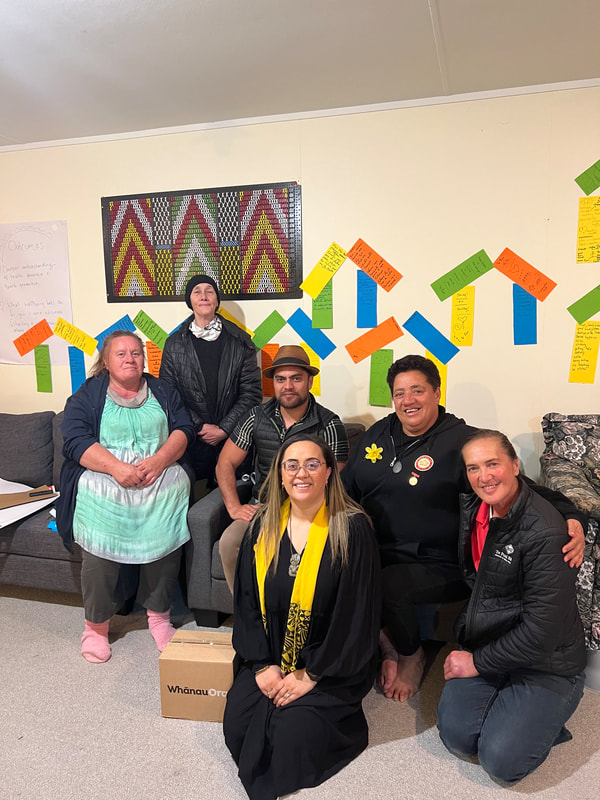
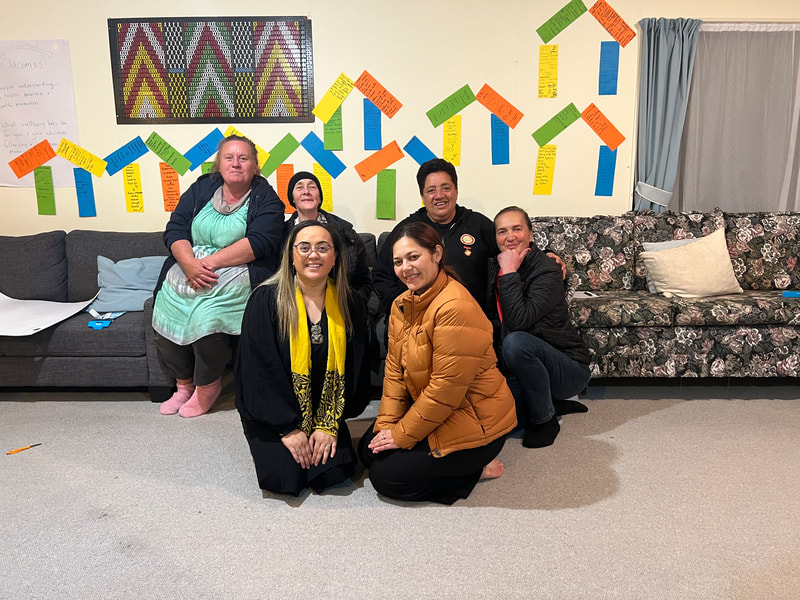
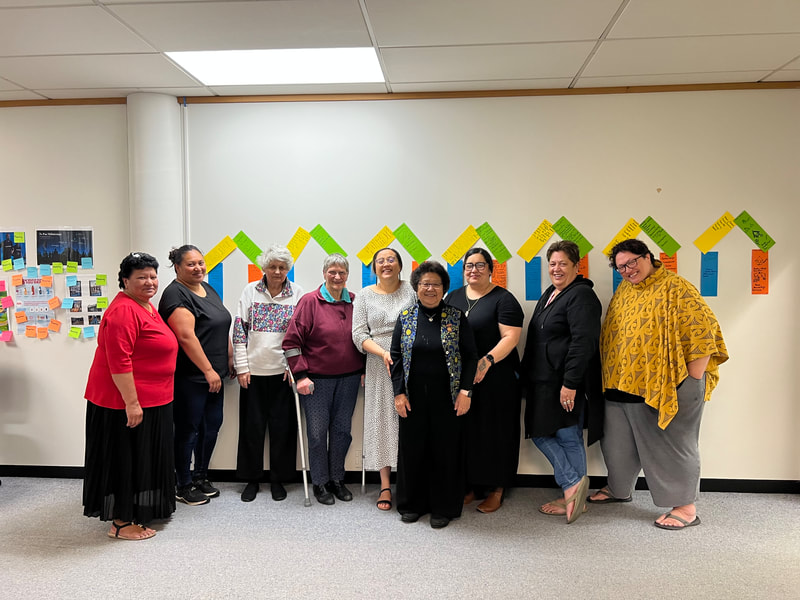
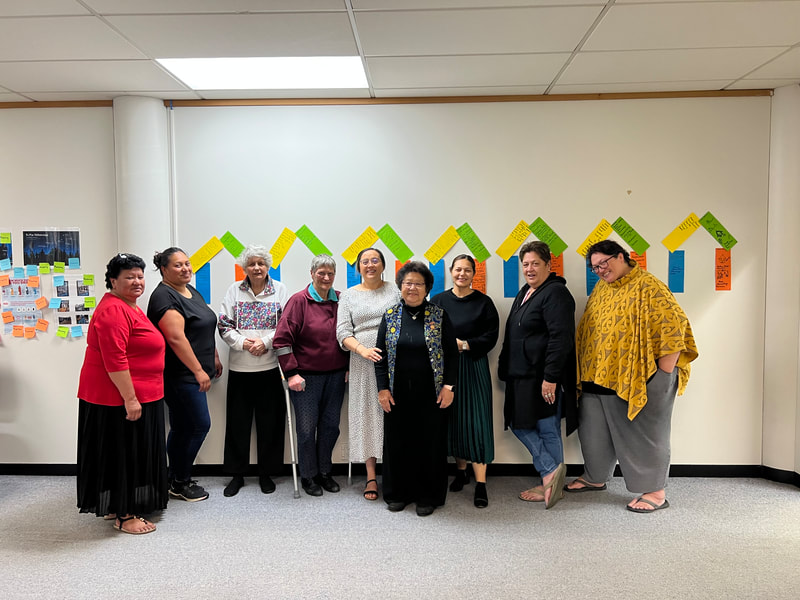

 RSS Feed
RSS Feed